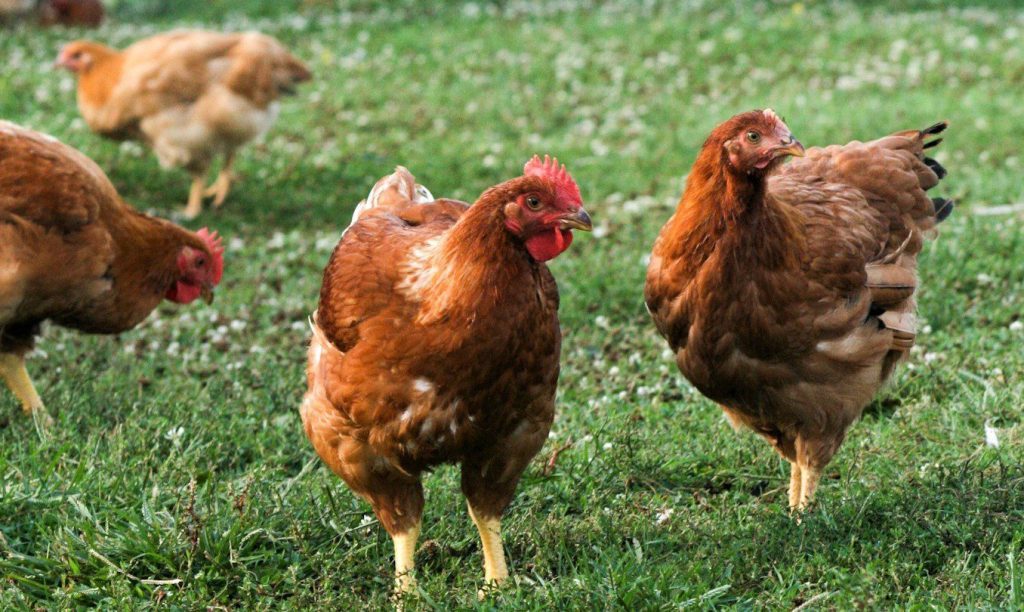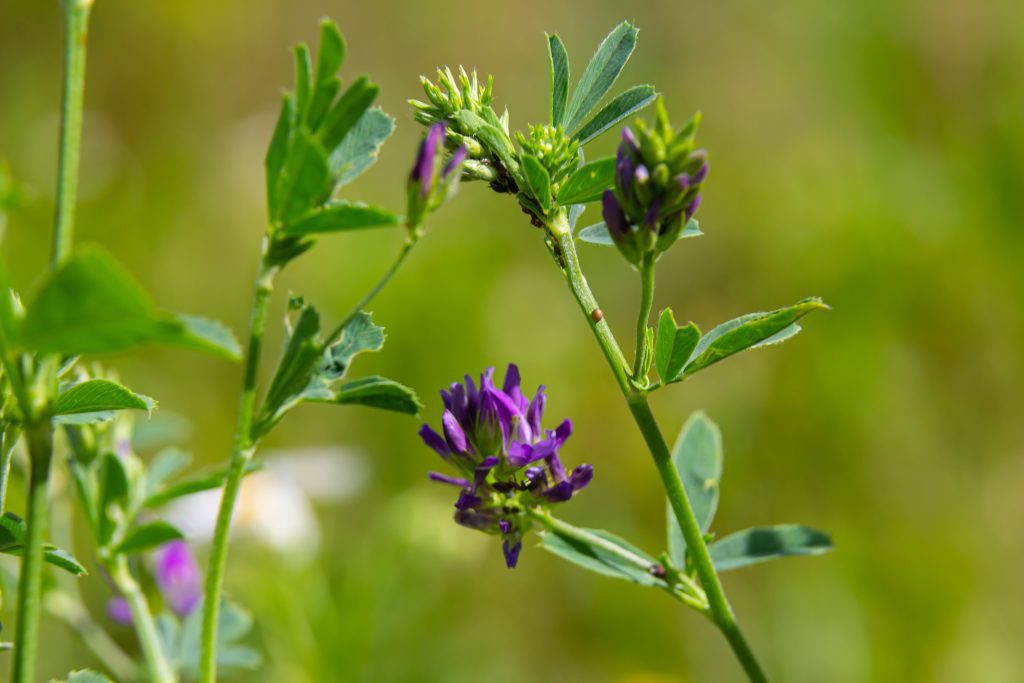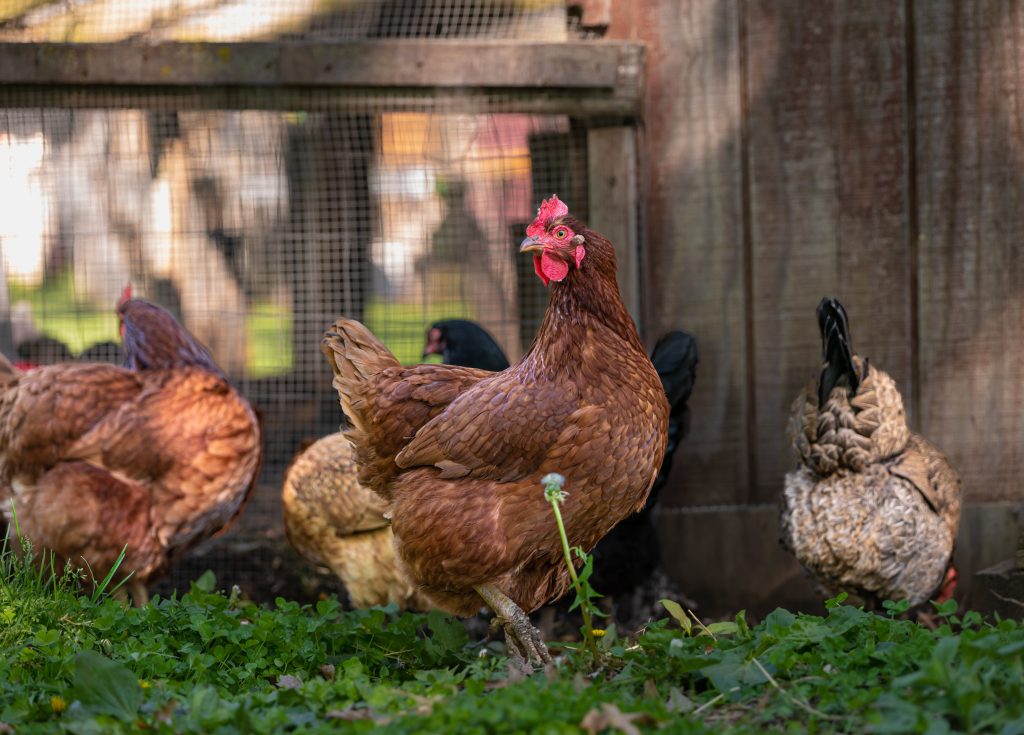
Raising free-range chickens offers a variety of benefits, both for the chickens and the land they roam. But if you’re a backyard chicken keeper or small-scale farmer, you might be wondering: What are the best plants to grow so your flock can forage naturally and stay healthy? With so many options, choosing the right forage can feel overwhelming.
In this post, you’ll learn about the best forage for chickens, highlighting the top nutrient-rich options that support your flock’s health and help regenerate your pasture.
Chickens are happiest when they’re allowed to express their natural behaviors—and foraging is at the top of that list. Here’s how foraging benefits your flock:
Offering your chickens the opportunity to forage isn’t just beneficial, it’s transformational. With access to pasture and the right plants, your birds thrive, your land improves, and you set the stage for a more sustainable, successful homesteading experience.
When chickens forage for their food, they consume a range of nutrients that are difficult to replicate in traditional feed. For example, insects, worms, and seeds found in the pasture are rich in protein, fats, and vitamins. Plants like clover and dandelion provide additional vitamins, while grasses offer fiber for healthy digestion.
The diversity in their diet supports optimal egg production, better meat quality, and enhanced immunity against diseases. Free-range chickens that forage naturally tend to have stronger immune systems and are less susceptible to illness, thanks to the variety of nutrients they consume.
Foraging doesn’t just benefit your chickens; it also supports your land’s health. When chickens are allowed to roam and forage, they help naturally fertilize the soil through their droppings, which act as nutrient-rich compost. Additionally, chickens scratch the ground, helping to aerate the soil and break down plant matter.
By rotational grazing, you can ensure that your land remains healthy and productive while giving your chickens a fresh area to explore and forage. This sustainable practice promotes soil health, reduces the need for artificial fertilizers, and increases biodiversity in your pasture.

Now that you understand the benefits of foraging, let’s dive into the best forages to plant for your chickens.
Chickens love to peck at clover leaves, and it can help provide a more balanced diet, especially when eggs are the main product. Red clover is particularly high in protein, while white clover is great for attracting insects that chickens enjoy.
It’s rich in protein and essential vitamins, which supports the health of your chickens and improves egg production. Alfalfa is also a great option for rotational grazing because it’s a perennial that regrows year after year.
Kentucky bluegrass is a perennial grass with high protein content, which makes it an ideal choice for free-range chickens. It’s also durable and can thrive in various climates, making it perfect for pastures that get a lot of traffic from your flock.
Ryegrass is a great addition to your chicken’s diet because it’s rich in protein and fiber. It’s fast-growing and resilient, which makes it perfect for pastures with frequent grazing. Ryegrass also helps to improve soil quality by preventing erosion and adding organic matter to the ground.
Dandelions are a natural superfood for chickens. Rich in vitamins and minerals, Dandelions are also known for their medicinal properties, such as improving digestion and supporting liver health. Your chickens will love foraging for these nutrient-dense plants.
Cover crops like oats, peas, and beans are excellent choices for free-range chickens. These plants are rich in protein, and chickens love to forage for seeds, leaves, and insects found among them. Cover crops also help improve soil fertility and prevent erosion, contributing to the overall health of your pasture.
Herbs like oregano, thyme, and mint not only add flavor to your chickens’ diet but also have antimicrobial properties that can improve their health. Planting these herbs around your chicken pasture provides your flock with additional nutrients and can help deter pests.
Creating a diverse and nutrient-rich poultry pasture with the best forage for chickens does more than supplement your flock’s chicken feed; it transforms your homestead into a thriving ecosystem. Healthier birds mean healthier eggs, less stress, and a more sustainable setup overall. Whether you’re just getting started with chickens on pasture or looking to enrich your current flock’s environment, it all begins with choosing the right birds.
To ensure that your free-range chickens are able to forage effectively, consider implementing a rotational grazing system. By rotating your chickens between different sections of pasture, you can allow the land to rest and regenerate while giving your chickens access to fresh forages. This practice supports sustainable land management and ensures that your chickens always have access to healthy and nutritious food.

Now that you know just how powerful foraging can be, not only for your land but also for your chickens’ health, behavior, and overall happiness, it’s time to put that knowledge into action. Giving your chickens the freedom to forage creates a more natural, enriching environment that leads to calmer flocks, healthier eggs, and more sustainable living. But it all starts with choosing the right birds.
At Freedom Ranger Hatchery, we specialize in hardy, active breeds that thrive in free-range and pasture-raised environments. Our chickens, like the robust Freedom Ranger Broilers and heritage breeds such as Rhode Island Reds, are bred to forage, explore, and flourish outdoors, making them the perfect addition to your backyard or homestead.
Give your flock the best start possible. Choose high-quality, ethically bred chicks designed for free-range success.
You can contact us for more information about your backyard chickens and take the first step toward a healthier, happier, and more self-sufficient homestead.